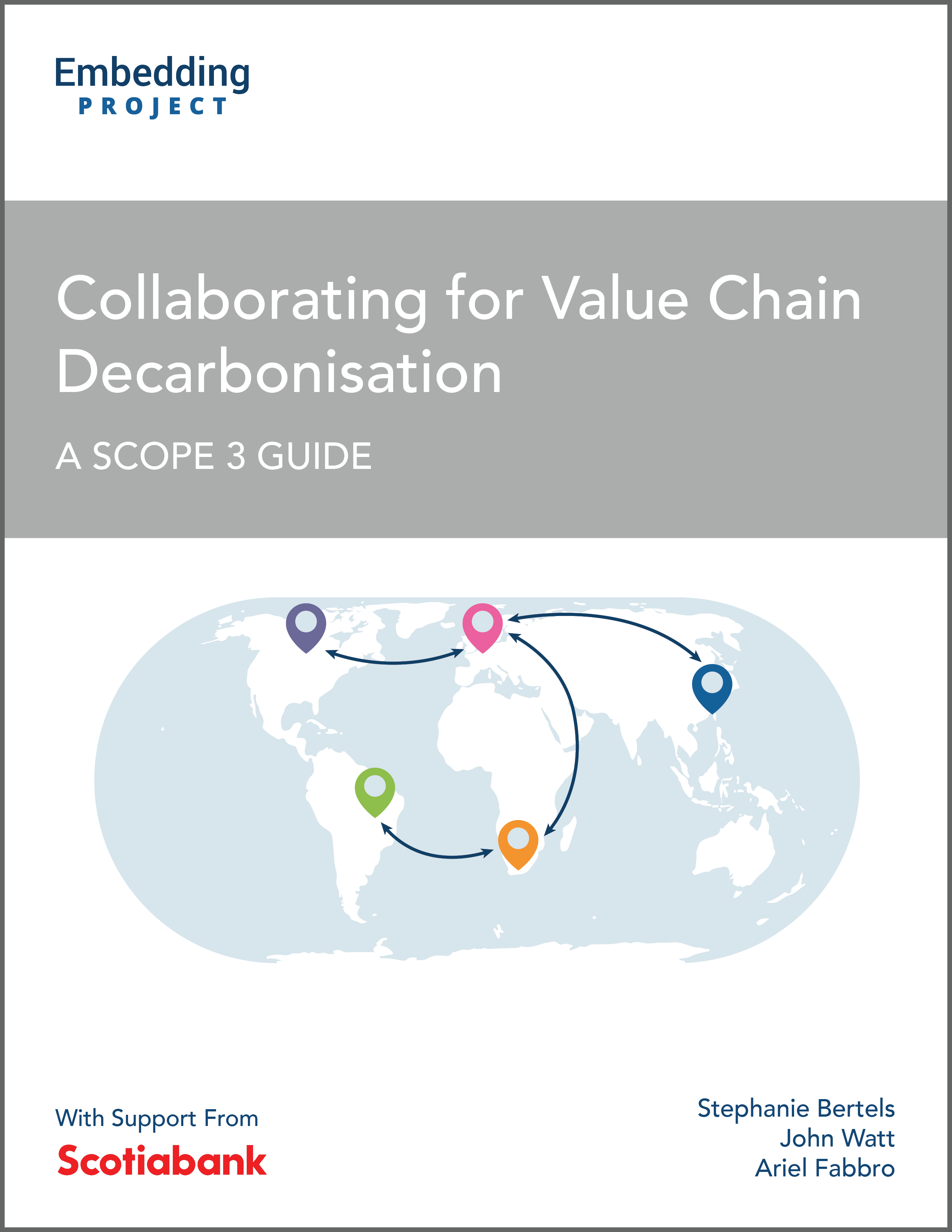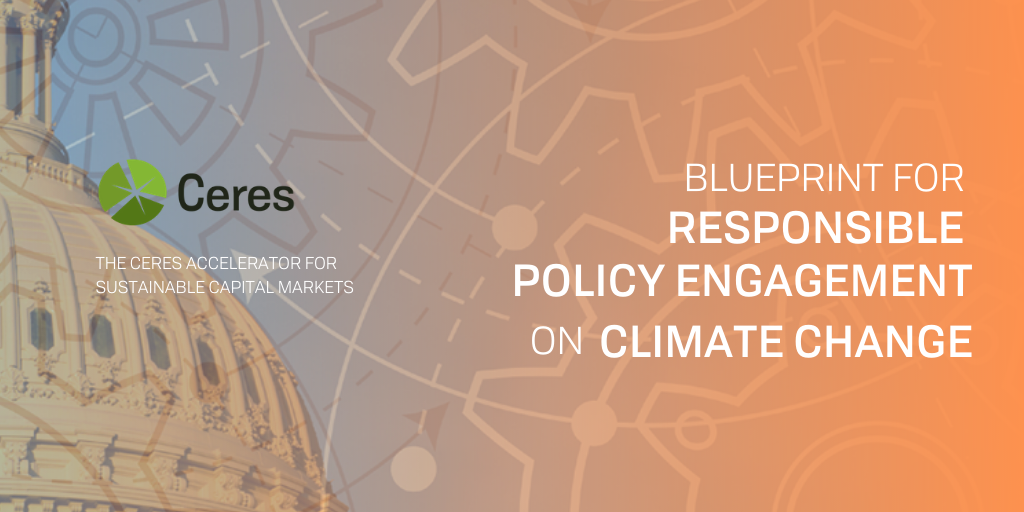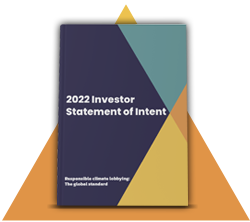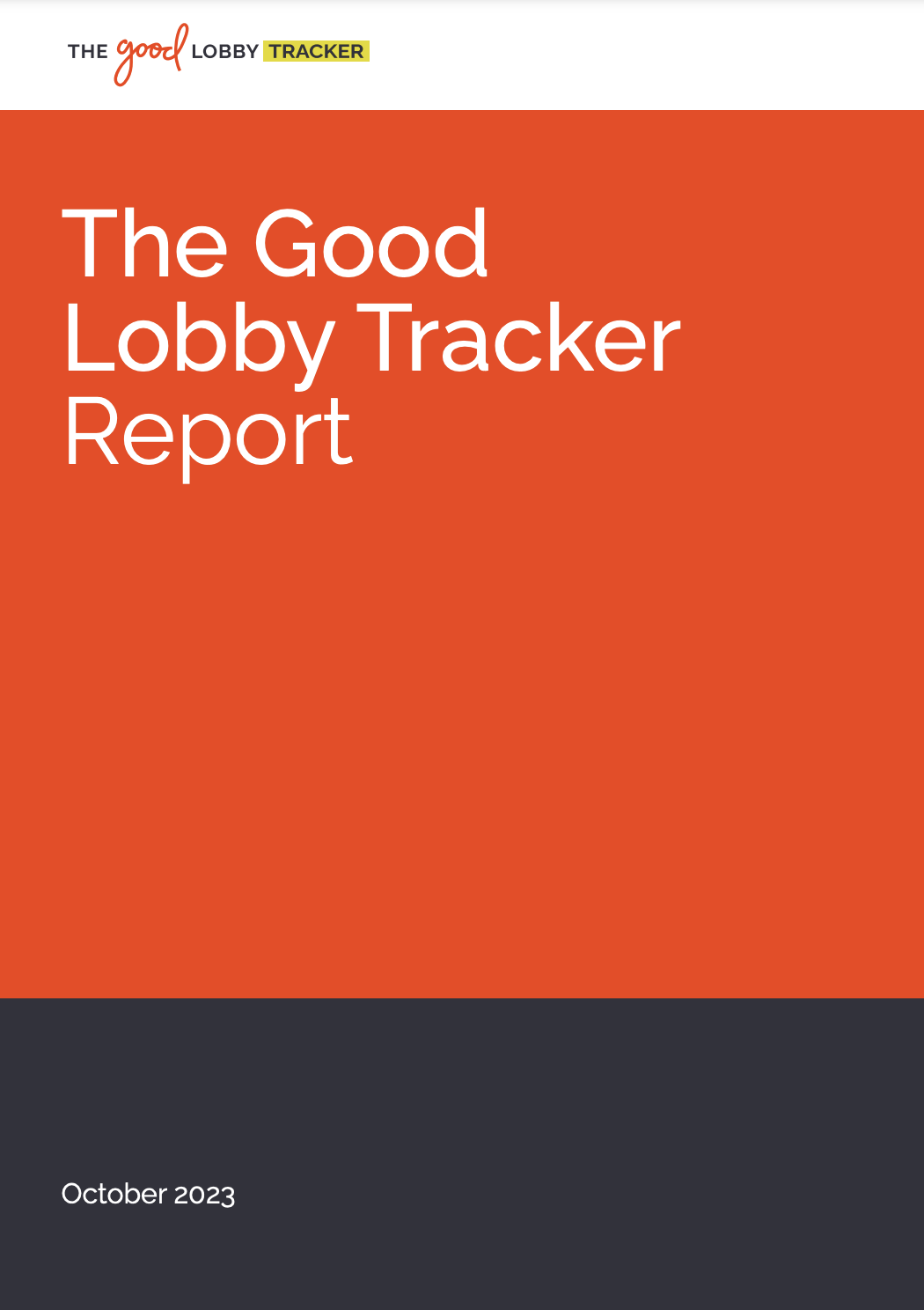Contribute to Systems Change
Description
These resources will help you to identify key system leverage points and opportunities where your resources and influence can be used to collaborate with others to contribute to the resilience of social and environmental systems.
Share this Practice on:LinkedIn
Resources
Collaboration
Collaborating for Value Chain Decarbonisation
With the urgent need to reduce global emissions, rapid decarbonisation of our economy is essential, and the key is collaboration across the value chain. Our new guide provides practical advice and examples to help companies support their supply chain partners to decarbonise.
You'll find advice on how companies are prompting, influencing, supporting, and investing in their value chain and resources and ideas for how to support six key decarbonisation pathways: renewable energy adoption; energy efficiency and conservation; logistics; materials stewardship and waste; lower-impact agriculture and land-use; and carbon removal.
The Dawn of Systems Leadership
What are the core capabilities needed to enable meaningful cross-sector collaboration? In this article from SSIR, Peter Senge and his co-authors help explain how to develop these competencies by sharing stories of leaders who have made a difference in navigating complex systems.
Unlocking the Power of Partnerships
This report aims to highlight the potential strength of effective cross-sector partnerships in delivering against broader societal sustainability goals. KPMG have supplemented their own experiences with one-to-one interviews and research to put forward a framework of eight factors that should be considered when creating, operating, and sustaining collaborative partnerships.
Business Led ESG Collaboration: How-to Guide for Business
This guide was created to help you understand and act upon opportunities for collaboration on key sustainability issues. It introduces and unpacks five phases and eleven steps towards implementing a successful ESG collaboration, and highlights critical success factors and barriers. This guide acts as a road map for leaders and sustainability change agents, and is a good starting point for companies that are exploring the business case and practical process for collaboration.
Although this guide was created for Canadian business audiences, the lessons are applicable across all regions and industries, as well as for non-profit organisations and governments.
Collaborating with the Competition
One of the best ways for businesses to obtain external sustainability knowledge is to collaborate with their competitors. Collaboration helps businesses advance their own sustainability initiatives while increasing their capacity to tackle industry-wide challenges. This article breaks down the concept of competitor collaboration and explains how sustainability leaders, executives, and NGO professionals can work together to overcome complex industry-wide problems. It also addresses some of the challenges that can arise from collaborating with the competition, including how much information you should share and how to implement collective decisions within your own organisation.
Radical Collaboration to Accelerate Climate Action
This accessible guidebook highlights seven practices for effective, cooperative, and inclusive collaboration (as well as seven pitfalls to avoid). This is a good priming document for ensuring that team leaders and members involved in collaborative efforts share the same process vision.
Although this guidebook is centered on climate action, the practices and recommendations are applicable to collaboration on any sustainability-related issue.
Sustainability Through Partnerships
This report offers a comprehensive summary of how collaboration is key to unlocking sustainability. The report starts with the premise that no single organisation or sector has the knowledge or resources to "go it alone," and explores the nature and characteristics of different types of multi-sector partnerships before offering a model for the creation of cross-sector partnerships. The report ends with a series of focused recommendations and good practice for different groups (Business, NGOs, Government, and Communities) engaging in partnerships.
Lobbying
Blueprint for Responsible Policy Engagement on Climate Change
Despite the clarity and availability of scientific research, policy action on climate change has fallen short of what is needed. This resource from Ceres will help you to establish systems that address climate change as a systemic risk and integrate this understanding into your company's direct and indirect lobbying on climate policies. Designed primarily for the governance and legal departments of companies, this Blueprint builds on existing resources and provides concrete recommendations for 1) assessing the impacts of climate change to your company, 2) systematizing decision-making on climate change across the company, and 3) acting to align lobbying with public, science-based climate policies. Many of the guiding principles here can also be applied to other social and environmental issues that impact your company.
Responsible climate lobbying: The global standard
This global standard was created to provide a framework to ensure that companies' lobbying and political engagement activities align with the goal of restricting global temperature rise to 1.5°C above pre-industrial levels. It includes an investor statement in support of responsible climate lobbying as well as an appendix of 14 indicators of responsible climate lobbying, which outlines requirements among policy and climate change-related commitments; governance; and actions. This standard is an excellent starting point for any business currently engaged in direct and/or indirect climate lobbying as well as businesses actively considering participation.
The Erb Principles for Corporate Political Responsibility
This set of principles from the ERB Institute was created to provide you with an actionable, nonpartisan template for responsible corporate engagement in political affairs. The principles cover four topics: legitimacy, accountability, responsibility, and transparency. Foundational responsibilities and discretionary opportunities are outlined for these topics. This guidance will be most applicable to legal and compliance teams, but may also be insightful for sustainability teams seeking to better understand how businesses may be undermining their sustainability efforts through their lobbying.
The Good Lobby Tracker
Attention to ESG disclosure has risen dramatically in recent years, and yet the "political footprint" of businesses consistently flies under the radar. This resource can help you understand this phenomenon, as well as understand the tools that are currently available for reporting on corporate political activities such as lobbying, political spending, and other forms of public policy influence. The tracker assesses all major corporate political responsibility initiatives, identifies trends and best practices, and provides specific recommendations for action for different stakeholders, including companies and investors. It also features a series of ranked scorecards for each of the 26 initiatives assessed. This guide will be most useful to corporate change agents, investors, and others interested in making political conduct of businesses more visible and better aligned with addressing sustainability challenges.
How Can Companies Use Their Political Influence Responsibly?
This article explains how businesses can engage responsibly in the political sphere and advance sustainability through their political activities. The article asks key questions that can help your company to better use its political clout, and unpacks four principles - accountability, transparency, responsibility, and legitimacy - that can help you to better understand whether (and how) to engage in political influence.
How Business Leaders Can Lobby for Climate Action
This article from NBS can help you to become involved in pro-climate lobbying. It explains what corporate lobbying is, explains the key ways for business leaders to get involved, and provides a 4-step approach to creating a pro-climate lobbying strategy for your business. It also provides examples of ways to get involved in climate advocacy outside of work.
Other Resources
Systems Change Lab
This open-source data platform monitors global progress across major social and environmental systems and identifies transformational shifts needed to protect both people and the planet. The platform uses an interactive visual to highlight progress against climate, biodiversity, and equity targets (among others) and identifies the key forces that are driving positive and negative impacts on each topic. The platform identifies indicators that can show where change momentum is growing and waning, and features a dashboard that shows how systems connected and highlights where coordinated action is most needed. This tool is a good entry point for junior change agents, executives, and other professionals who want to build their understanding of interrelated natural and social systems and the trajectory of actions affecting them.
Decolonizing Wealth: What If Money Could Heal Us?
This article from Edgar Villaneuva explains how wealth - if distributed fairly - can be used to disrupt rather than perpetuate and exacerbate systemic inequity. Beyond funding priorities and tax code concerns and other critiques, Villaneuva levels his gaze at colonialism and the insidious ways in which it influences philanthopy and wealth management, allocation, and spending. He contends that white supremacy, white saviourism, and internalised oppression are preeminent and problematic throughout giving, lending, and investment decisions, and that these issues must be understood and addressed before equitable contributions to systems change can be achieved. This resource - as well as his book - will help you to understand these issues so that you can provide more equitable access to resources for marginalised and vulnerable communities.
Share this Practice on:LinkedIn









